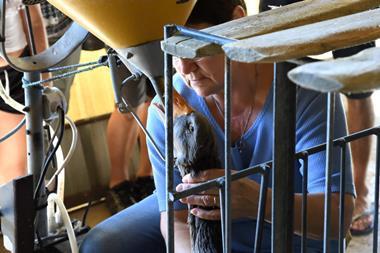
Defra continues to vastly underplay the cost of the proposed new extended producer responsibility (EPR) fees, despite publishing detailed rates for the eight materials for the first time last week that are “far higher than expected”, claim experts.
Defra has insisted that its original £1.4bn estimate – which was far lower than the £1.8bn-£2.1bn modelling of Valpak that has been widely used by many suppliers for EPR preparations – is still correct despite the detailed rates for the packaging materials in some cases being considerably higher per category than those used in Valpak’s 2022 PackFlow model.
The result is “a black hole of at least £500m” that suppliers could end up filling, said a supplier source, adding that with the £200m-plus income from the separate plastic tax, the government would likely be netting at least £2bn when the new fees are introduced in October 2025, and without providing any accountability for how the tax is used.
The true cost inferred from Defra’s category breakdowns was “far higher than expected, and will drive significant inflation, adding to pressure on household budgets,” claimed FWD CEO James Bielby, while the supplier source warned of major job cuts.
With Defra previously admitting that estimates, based on figures from local authorities, were patchy and unreliable, suppliers have been locked in talks with Defra this week over the discrepancies, and are demanding lower fees and greater transparency over how Defra reaches its figures when it publishes its next set of estimates in September.
Calls for delay
British Glass has already called for Defra to postpone the EPR launch after the material was given a higher estimate of up to £330 per tonne under the new system – 150% more than the previous “worst case” expectations – due to a proposed fee structure based on cost per tonne.
Writing in The Grocer recently, Belvoir Farm MD Pev Manners warned the fees risked being an “extinction event” for a wave of British SMEs, such were the scale of the charges.
Jamie Keeble, co-founder of Heck, added The Grocer the fees would have a disastrous impact across multiple sectors.added: “This is just another burden on SMEs, not a solution. This tax will be a huge cost to us. We believe we are already leading the industry in sustainability and growth to net zero, and Defra should be supporting and encouraging businesses such as ours elves rather than taxing us to plug the black hole in local government waste budgets.”
Suppliers also want Defra to guarantee EPR is producer-led, so local authorities are accountable for investing in recycling infrastructure, rather than the tax disappearing into “a bottomless pit”, and to help attract more investment into underfunded local recycling resources. And they warn that unless the government allows chemical recycling for soft plastic, EPR will not succeed in its aim of slashing single-use plastic.
Read more:
-
Labour does not have time to dally on EPR fees
-
Ocado first to pilot online reusable packaging scheme
-
EPR scheme base fees unveiled by Defra
FDF director of corporate affairs and packaging Jim Bligh said: “Manufacturers strongly support EPR because we want and need a circular economy for packaging, so materials can be used again and we can play our part in reducing waste.
“We have always known EPR comes with a big price tag of at least £1.7bn from next year. These hefty costs mean it is even more important now that EPR actually delivers the zero-waste economy goal we all share.
“Piling money in to fund the status quo is not an option: recycling rates are stuck in a rut and producers are now legally on the hook for increasing recycling rates.”
Defra bosses stressed that new environment secretary Steve Reed was determined to accelerate the path towards net zero. A new Defra taskforce is being set up, including key industry bodies, to ensure policies like EPR were implemented in a “collaborative approach”, following a series of delays and rows under the previous government.
However, Defra has also stressed its proposals will be subject to approval in Chancellor Rachel Reeves forthcoming spending review.



















No comments yet